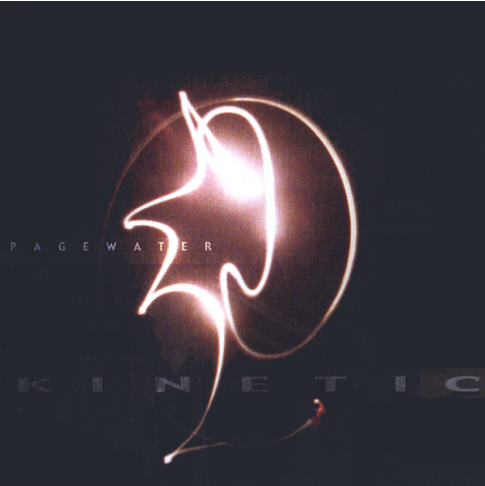There’s something electric that happens when two bands who have no business being on the same bill share the stage and make magic. That’s what it felt like every time Down on Jane and Pagewater, two Pittsburgh bands, played together. Stylistically, we couldn’t have been more different, two totally distinct sounds coming out of the same Pittsburgh scene, but when we shared a show, there was an undeniable chemistry. Not just between the bands, but between the fans too.
Down On Jane
Down on Jane leaned into a groove-driven rock sound, hook-forward songs with a bit of grit, punchy rhythms that locked in tight, and lots of guitar—three of them, to be exact, each with its own voice in the mix. The sound wasn’t just loud, it was alive; chords churning, with riffs weaving around each other, vocal harmonies, drums, and bass. We came at the audience with immediacy and energy, the kind you feel in your chest as much as in your ears. From the first note, there was no slow build or easing in. We hit hard, locked in, and didn’t let up until the lights came up. Our sets were about movement, connection, and keeping the room leaning forward, waiting for whatever came next.
Pagewater
Pagewater had an intense, almost magnetic energy. Their music was melodic and cinematic, built on lush guitar textures that pulled you in and wrapped around you. Their track “Laminated Skin” was an anthem that captured everything that made them special. Steve Stiller’s guitar work on that song was overflowing with texture and soul, able to make a single guitar sound like an entire layered arrangement. He remains one of the best guitarists I’ve ever played with. Then there were Evan on bass and Jason on drums, a rhythm section so locked-in and powerful they could shake the walls without ever losing precision. And at the front was Kevin Facer, whose raw presence made every lyric feel like it was being carved in real time.
Kevin wasn’t just the voice of Pagewater; he was also the engineer and producer behind Down on Jane’s recordings at Soundscape Studios, with a rare gift for capturing a feeling, whether through a microphone or a melody.
The Rex
One of the more memorable shows we played together was at the Rex Theater, shortly after it had reopened as a concert venue in the early 2000’s. You’d think a historic venue trying to reclaim its legacy would welcome collaboration from the local scene. Instead, we got something else entirely.
Good Bands
After soundcheck, we ended up in a conversation with the club owner of the Rex. Jason Godek, Pagewater’s drummer, mentioned that he installed live sound systems for a living and offered to help them dial in their PA setup. That’s the kind of guy Jason is: smart, thoughtful, technical, and generous.
The owner looked him over and replied, “Well, I think the system is accurate.”
Jason paused. “Accurate? What does that mean?”
And then, with a smugness you don’t forget, the owner said, “When we have good bands play here, this audio system really shines.”
We Were Stunned.
Two local bands, both hustling, both building loyal followings, both willing to help this guy turn the Rex into a better venue, and he just straight-up insulted us. Right there. No filter.
We all looked at each other, and without even needing to say it out loud, we knew: we’re never playing here again.
That moment, in all its absurdity, defined something deeper about our connection with Pagewater. We weren’t just bands on a bill, we were allies in the same fight. Both of us were out there night after night, hauling our own gear, stapling flyers to telephone poles, and hustling to get ten more people to show up to the next gig. Our bands were fighting for a better scene, one where original music was valued as much as cover bands and where local acts didn’t have to beg for decent sound or fair pay. We were fighting for respect, not just from venues and promoters, but from a music culture that sometimes overlooked its own hometown talent. And most of all, we were fighting for the music itself, for the songs that kept us up at night, for the riffs and lyrics we believed in too much to let fade, and for the fans who connected with it all in ways that made the grind worth it. And then, as it always does, life moved on…
Moving On…
Kevin moved away. Dan got sick. Matt had kids. I got married. The gigs slowed. The practices stopped. Life took over. Pagewater ceased to exist. Steve and Jason went on to form Kill the Drama, and Down on Jane quietly stepped away from the stage. Scott moved to New York for work. Dan moved there, too, and then on to Vermont.
But the bond between us and Pagewater never really broke. It was forged in sweaty green rooms, late-night diner runs, and conversations that lasted longer than load-outs. It was built on shared bills, shared gear, and shared frustration with a scene that didn’t always know what it had.
We didn’t sound like each other. But we understood each other. And maybe that’s what chemistry really is: not matching tones, but matching purpose.
And in those years, at those shows, in front of those crowds, we shined, not because of any sound system, but because we had each other’s backs.
That’s something no club owner can take away.
What We Learned
Looking back, what we took from those years goes way beyond the music. We learned that chemistry isn’t about sounding alike, it’s about sharing a purpose, and that the local scene only survives when bands look out for each other. To succeed bands have to trade resources, share crowds, and stand together when things get rough. We learned that respect has to be mutual between bands, between venues, between the people pouring their hearts into a song, and the people hearing it for the first time.
Most importantly, we learned that sometimes the “competition” is actually your greatest ally. Pagewater pushed us to bring our best, not just because we wanted to match their level, but because we genuinely wanted to rise together. In a place where egos can get in the way, that kind of camaraderie is rare. It made the grind easier, the bad nights bearable, and the good nights unforgettable.

